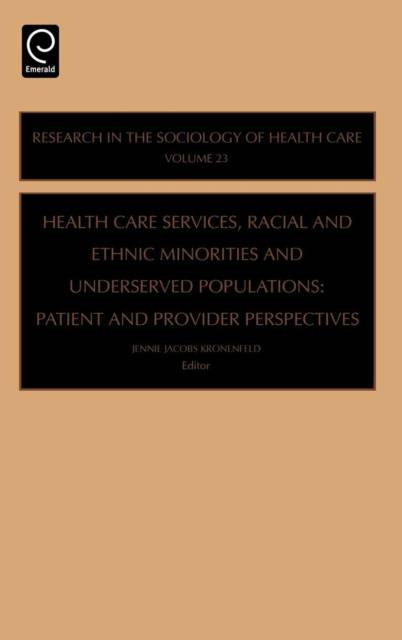
- Afhalen na 1 uur in een winkel met voorraad
- Gratis thuislevering in België vanaf € 30
- Ruim aanbod met 7 miljoen producten
- Afhalen na 1 uur in een winkel met voorraad
- Gratis thuislevering in België vanaf € 30
- Ruim aanbod met 7 miljoen producten
Zoeken
Health Care Services, Racial and Ethnic Minorities and Underserved Populations
Patient and Provider Perspectives
€ 241,95
+ 483 punten
Omschrijving
The theme of this volume is "Health Care Services, Racial and Ethnic Minorities and Undeserved Populations: Patient and Provider Perspectives". The volume is divided into five sections. The first section discusses the overall issue of health care disparities and undeserved populations and also provides introductory material about the rest of the volume. The next section focuses on issues that relate to gender. The third section provides papers on some other specific examples of undeserved populations: those with mental health concerns, those with concerns related to emotional well being, the elderly population and sex workers. The fourth section includes papers that discuss treatment disparities and providers of care. The final section includes papers that relate to policy concerns. The topic of health care services and undeserved populations is one of growing importance within the US health care system and one of importance in health care systems across the world. Concern about equity in health care is not new. There is a long tradition in medical sociology of studies of inequities in health status and use of health care services. Over the past ten to twenty years, there have been many studies that have documented that race and socioeconomic status (SES) influence the use of health care services. Within the US in the past decade, this area of concern is often described as studies of health disparities and this volume is a contribution to that research. This volume examines the issue more broadly, by including some issues in countries besides the US and examining the role of providers in treatment disparities and important policy concerns.
Specificaties
Betrokkenen
- Uitgeverij:
Inhoud
- Aantal bladzijden:
- 308
- Taal:
- Engels
- Reeks:
- Reeksnummer:
- nr. 23
Eigenschappen
- Productcode (EAN):
- 9780762312498
- Verschijningsdatum:
- 5/10/2005
- Uitvoering:
- Hardcover
- Formaat:
- Genaaid
- Afmetingen:
- 174 mm x 236 mm
- Gewicht:
- 594 g

Alleen bij Standaard Boekhandel
+ 483 punten op je klantenkaart van Standaard Boekhandel
Beoordelingen
We publiceren alleen reviews die voldoen aan de voorwaarden voor reviews. Bekijk onze voorwaarden voor reviews.






